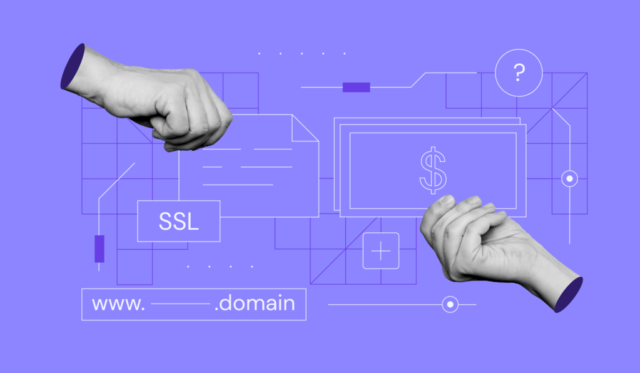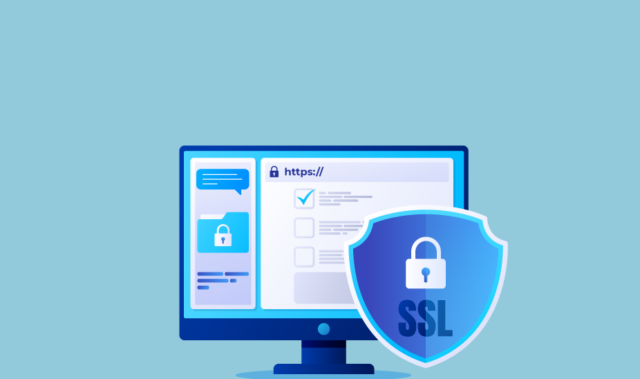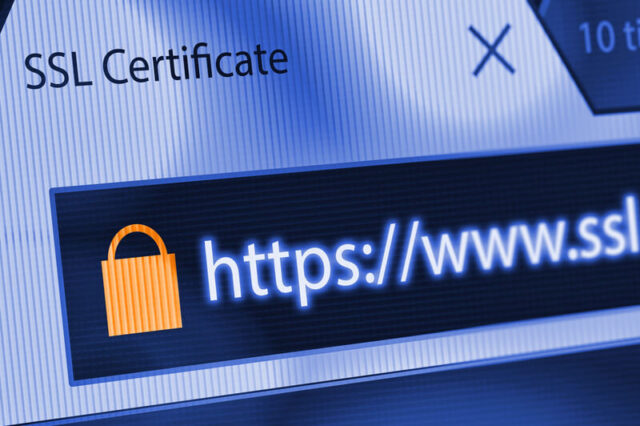
SSL certificates are becoming trendy for popular websites and blogs. Although more ignorance and hype is spread about the whole web encryption system, webmasters and visitors feel psychologically safer when they have an HTTPS URL.
You could call it the placebo effect or overzealous security, but overall SSL doesn’t hurt, even if it’s not required. Encrypting URLs and internet traffic goes a long way in making the internet safer and deterring the bad guys.
This article will explain some common myths about the magic or misconceptions associated with a secure HTTPS URL.
1. SSL Certificates Are Expensive

SSL certificates are available in different variants at different prices. There is a type that is sure to fit every type of person and the needs of every organization. After Facebook made it mandatory to use an https:// URL to set up Facebook apps, SSL certificate sales took off.
A basic SSL certificate with domain validation costs a few dollars a year. Extended validation costs a few hundred dollars a year. Of course, these costs do not include the costs for a dedicated IP address and the hosting storage space.
The dedicated IP address can cost anywhere from $20 to $100 per year. While the cost of an SSL certificate isn’t high outright, you need to consider overheads like bandwidth, CPU/memory resources, and web server limitations
2. SSL Certificates Prevent Hacker Attacks
They do not prevent or prevent a hacker from exploiting weak code or vulnerable software on your website. SSL Certificates merely act as a secure pipe or tunnel for data to flow through, preventing an intermediary from intercepting the traffic and seeing what is being sent.
SSL does not perform any control at either end of the pipe or tunnel and does not cover the protection of a client-side browser or server-side database. So if your passwords are stored unencrypted in your MySQL database and your database is compromised for any reason, SSL has no effect on protecting your database information.
3. SSL Does Not Affect SEO

Please note that SSL can slow down the website slightly, especially when a page first loads. This can be an exponential problem and require adjusting the settings on your web server.
However, Google recently announced that it would prioritize URLs beginning with HTTPS in its search results, to make the internet safer and to encourage online retailers to secure the flow of data and sensitive information. If you weigh both factors equally, they cancel each other out, so the impact on search engine rankings (either positive or negative) is negligible.
4. You Need a Separate IP Address for Each Https Subdomain
There are many types of SSL Certificates with many different features to suit your budget. Typically, an SSL certificate only covers a fixed URL, i.e. H. https://your_domain.com. The regular SSL certificates don’t even cover [https://www.your_domain.com].
To encode a subdomain or even a URL with www. You need to take an additional certificate with you and register this URL with the certificate-issuing company (certificate authority).
The problem arises when you have multiple subdomains and want to encrypt traffic on all of them. In this case, you must purchase a WildCard certificate. The wildcard certificate, as the name suggests, encrypts all traffic for the primary domain and also the traffic on each subdomain of that primary domain, i.e. Https.your_domain.com. It’s called a WildCard certificate because it represents the wildcard character that indicates anything and everything.
5. They Are Difficult to Manage or Migrate
Source: appviewx.comInstalling SSL certificates might be a bit confusing at first, but most web hosting control panels come with a GUI interface that allows you to easily generate and import new public and private keys.
Changing your web hosting server or changing your dedicated IP address will invalidate your certificate. You can request a reissue of the certificate at any time by visiting the certification authority’s website and filling out their online form. Most providers will immediately issue a new certificate, which you can install on your new server and continue operating as usual.
6. SSL Certificates Guarantee 100% Security
Oh, bless your heart if ya believe this one. While SSL certificates are a crucial piece of the security puzzle, they ain’t no silver bullet. Think of ’em as lockin’ your front door — it helps keep the bad guys out, but it doesn’t mean they won’t try to climb in through a window or sneak in while you’re distracted.
SSL certificates encrypt the data exchanged between your website and your visitors, keeping it safe from prying eyes. But ya gotta remember, security is a journey, not a destination.
7. All of Them Are Created Equal, so Just Grab the Cheapest One!

Hold your horses there, partner! Not all SSL certificates are cut from the same cloth. There are different types, like Extended Validation (EV), Organization Validation (OV), and Domain Validation (DV). Each type comes with its own level of validation and trustworthiness. Sure, DV certificates might be cheaper, but they offer the least assurance.
EV certificates, on the other hand, are the cream of the crop, with a thorough validation process that puts your website in the spotlight. So don’t just settle for any ol’ SSL certificate; pick the one that suits your needs and boosts your credibility.
8. Once You Got an SSL Certificate, You Can Sit Back and Relax, Sippin’ on Margaritas
Sorry to burst your bubble, but cybersecurity doesn’t take no vacation, my friend. Your SSL certificate needs regular check-ups and updates. Just like your car needs a tune-up every now and then, your SSL certificate needs some lovin’ too.
Keep an eye on its expiration date and renew it on time. And hey, don’t forget to patch up any vulnerabilities or weak spots in your website. Stay vigilant and stay secure!
9. SSL Certificates Slow Down My Website Like a Snail Stuck in Molasses

Whoa there, speedy Gonzales! That ain’t always the case. While it’s true that ssl cert adds an extra layer of encryption to your website, the impact on speed ain’t as drastic as you might think. With advancements in technology, the performance hit from SSL encryption has become negligible.
Plus, search engines like Google give a thumbs-up to SSL-protected websites, boosting their rankings. So, it’s a win-win situation, my friend. Secure your website and keep it zipping along.
Conclusion
Now that we’ve busted these myths wide open, it’s time to take action and secure your digital turf. Remember, SSL certificates are just one piece of the puzzle. Stay informed, stay vigilant, and keep up with the ever-evolving world of cybersecurity. Your website and your visitors will thank ya for it. Happy secure surfin’!












